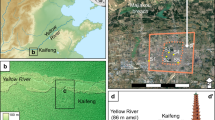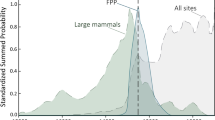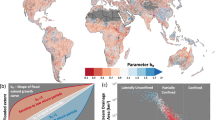Abstract
THE news of the dangerous floods at Memphis, Tennessee, inevitably invites a comparison with its Egyptian namesake. The modern town was laid out in 1819 (soon after the evacuation of the surrounding territory by the Chickasaw Indians) by three men, John Overton, Andrew Jackson, and James Winchester, who gave it the name of the most ancient of the great capitals of Egypt because of the similarity in the geographical positions of the two sites. They realised that the American site enjoyed an advantageous position at the head of the navigable waters of the Mississippi, and from that they doubtless hoped—and time has amply justified their hope—to derive the great commercial future for their new city which a like position at the apex of the Nile Delta had secured for Egyptian Memphis throughout a period of three thousand years.
This is a preview of subscription content, access via your institution
Access options
Subscribe to this journal
Receive 51 print issues and online access
$199.00 per year
only $3.90 per issue
Buy this article
- Purchase on Springer Link
- Instant access to full article PDF
Prices may be subject to local taxes which are calculated during checkout
Similar content being viewed by others
Rights and permissions
About this article
Cite this article
GLANVILLE, S. The Floods at Memphis. Nature 119, 813–814 (1927). https://doi.org/10.1038/119813b0
Issue Date:
DOI: https://doi.org/10.1038/119813b0
Comments
By submitting a comment you agree to abide by our Terms and Community Guidelines. If you find something abusive or that does not comply with our terms or guidelines please flag it as inappropriate.



